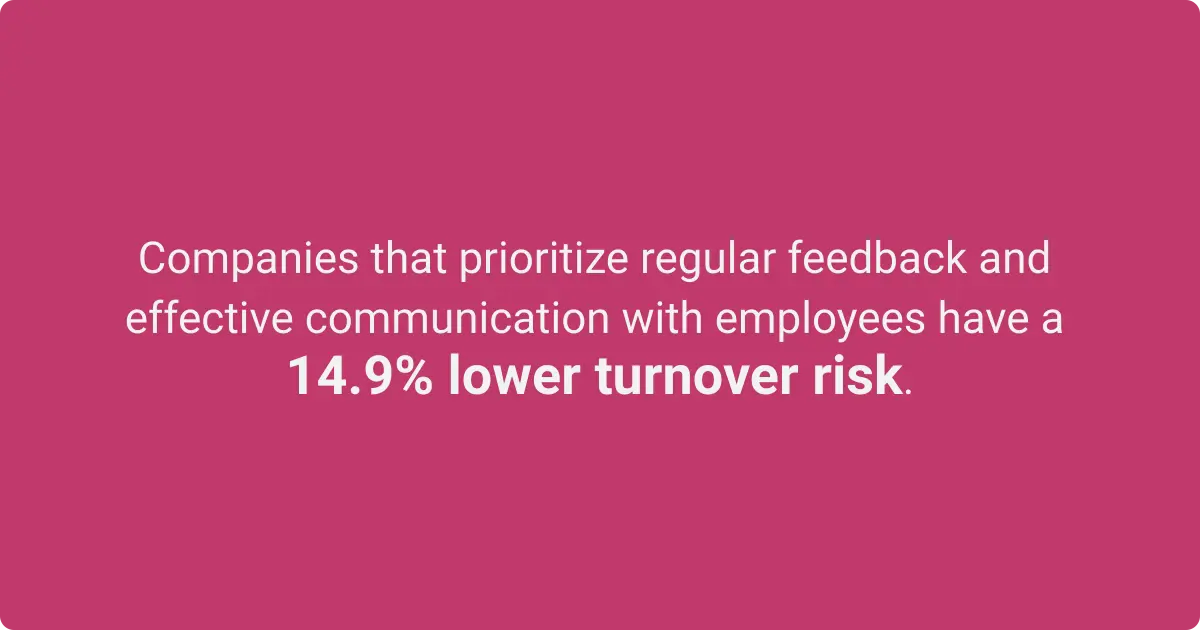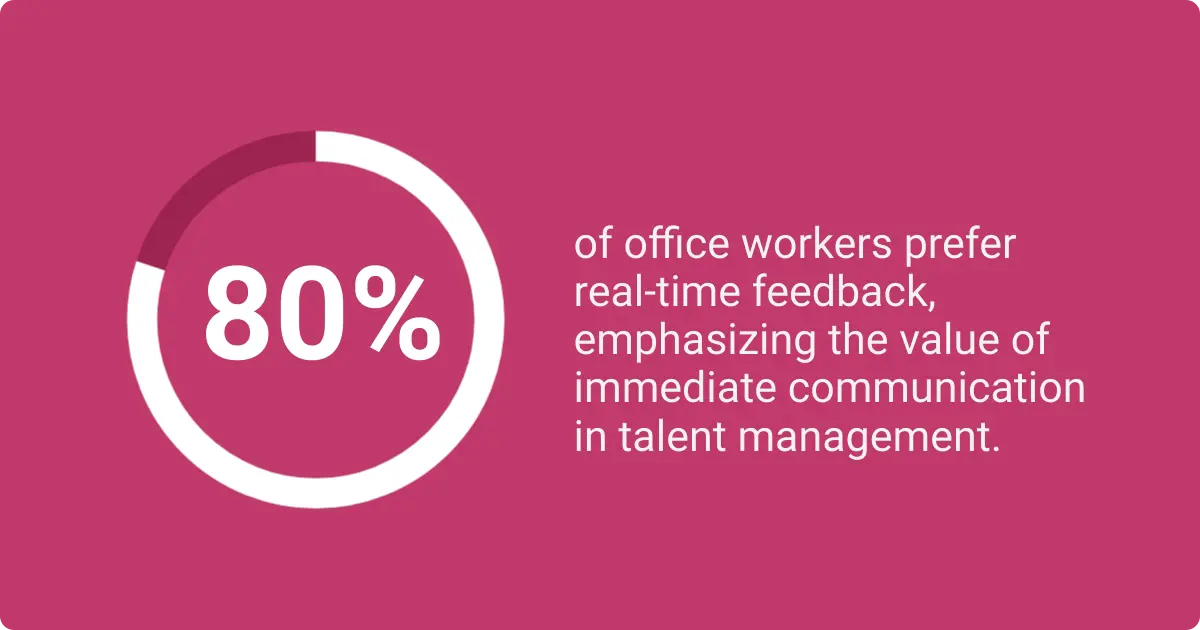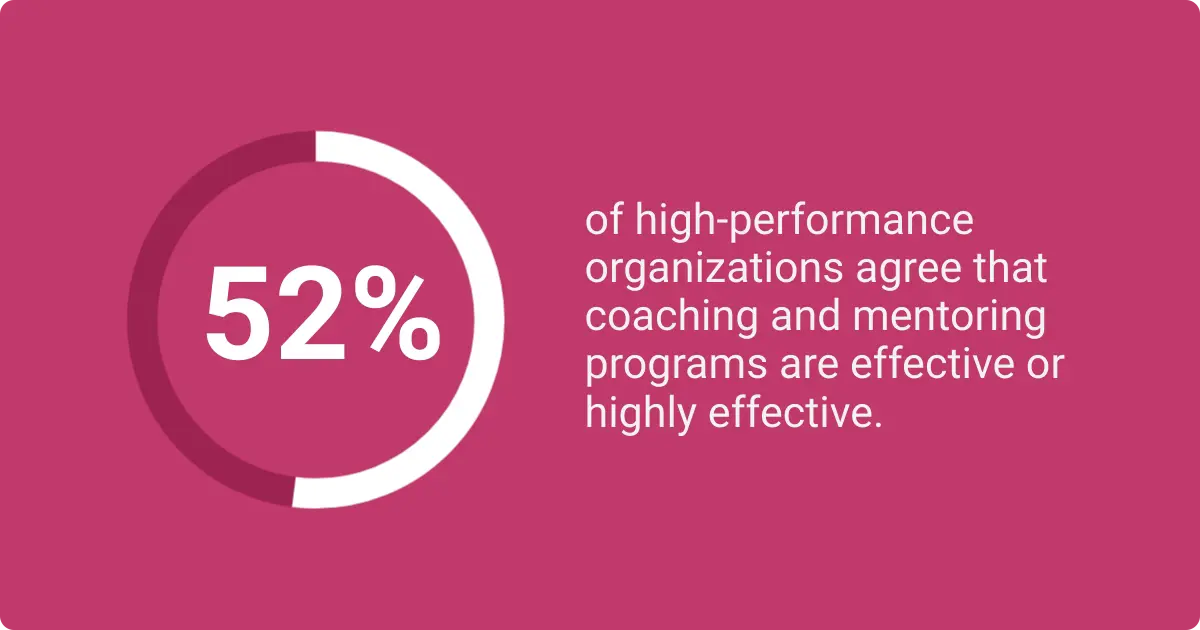10 Crucial People Management Skills Every Leader Must Master

Managing people goes beyond overseeing tasks or hitting performance metrics. Great managers understand, motivate, and empower employees to do their best work. They create environments where people feel valued, supported, and inspired to succeed.
At its core, people management is about leading with purpose—blending communication, emotional intelligence, conflict resolution, delegation, and decision-making to build high-performing, engaged teams. Research from Workhuman shows that employee-manager relationships drive 50% of turnover, proving that strong leadership isn’t just beneficial—it’s essential for retention and productivity.
This guide breaks down the most essential people management skills every leader should develop, along with actionable strategies to build motivated, high-performing teams. Whether you’re an experienced leader or stepping into management for the first time, these insights will help you create a workplace where both employees and business thrive.
Strong people management skills that drive team success
- 📌 Communication – Ensuring clarity, transparency, and effective listening.
- 🎯 Conflict resolution – Addressing and resolving team disputes constructively.
- 🧠 Emotional intelligence – Managing emotions and understanding others' perspectives.
- 🏆 Feedback & accountability – Setting clear expectations and delivering constructive feedback.
- 🚀 Delegation & empowerment – Assigning tasks effectively and trusting team members.
- 🏗️ Coaching & mentoring – Developing leadership skills and employee skills.
- 🔄 Adaptability & flexibility – Managing change, uncertainty, and workplace challenges.
- 📊 Time management & organization – Structuring tasks to optimize productivity.
- 🧩 Decision-making & problem-solving – Analyzing situations and making informed choices.
- 🤝 Building trust & engagement – Cultivating an environment of trust and mutual respect.
Mastering these important people management skills will help you build stronger teams, foster collaboration, and drive long-term success. Below, we break down each skill with practical strategies to help you apply them effectively.
1. Communication

Clear, transparent communication is a critical skill that underpins effective leadership. It ensures alignment, minimizes misunderstandings, and fosters a culture where employees feel informed and heard. Strong communicators don’t just talk—they listen, ask thoughtful questions, and adjust their messaging to fit different audiences.
Without effective communication, teams can become disengaged, confused about expectations, and prone to errors. A lack of transparency can also lead to mistrust, reducing collaboration and morale.
How to improve:
- Practice active listening – Show genuine interest in what employees say. Summarize key points to confirm understanding.
- Be concise and direct – Avoid ambiguity. Employees should clearly understand what is expected.
- Encourage open dialogue – Foster a workplace where employees feel safe to express ideas and concerns.
- Use multiple channels – Some messages work best face-to-face, while others are more effective via email or chat. Adapt accordingly.
💡 Stat to consider: 70% of the variance in an employee’s engagement ties back to their immediate supervisor. This means how well a manager communicates and connects with their team directly impacts engagement and commitment.
2. Conflict resolution
Disagreements are a natural part of any workplace, but how a manager handles them can make or break team cohesion. Effective conflict resolution is about addressing issues head-on, fostering open discussions, and finding solutions that satisfy all parties. A manager who avoids conflict risks unresolved tensions festering and damaging morale.
Great leaders create a culture where conflicts are seen as opportunities for growth, not sources of resentment. By encouraging healthy debate, they help teams refine ideas, build trust, and work more effectively together.
How to improve:
- Address conflicts early – Letting issues linger can lead to deeper resentment and bigger problems.
- Stay neutral and fair – Focus on the facts, not personal biases. Listen to all perspectives before making a decision.
- Encourage problem-solving conversations – Instead of assigning blame, ask, “How can we move forward?”
- Teach conflict-resolution skills – Empower employees to handle disagreements constructively without always relying on management intervention.
3. Emotional intelligence
Managers with strong emotional intelligence (EQ) understand their own emotions, recognize how their behavior affects others, and can read the emotions of their team members. This skill is critical for fostering a supportive workplace, resolving conflicts, and motivating employees.
Low EQ can lead to poor decision-making, increased tension, and a disengaged workforce. On the other hand, leaders with high emotional intelligence build trust, improve communication, and create a positive team dynamic.
How to improve:
- Increase self-awareness – Regularly reflect on your reactions and triggers. Journaling or mindfulness can help.
- Develop empathy – Make an effort to understand employees' perspectives before responding.
- Regulate your emotions – Stay composed under pressure. If you’re frustrated, take a step back before addressing a situation.
- Encourage emotional expression – Allow employees to share concerns without fear of backlash.
4. Feedback and accountability

Employees can’t improve if they don’t know where they stand. Consistent, constructive feedback helps individuals grow, while accountability ensures standards are upheld. A strong manager recognizes achievements but also addresses areas for improvement directly and fairly.
Failing to provide feedback creates confusion, while an accountability void can lead to underperformance and resentment among top performers.
How to improve:
- Be specific and timely – Give feedback as close to the event as possible and focus on concrete actions.
- Balance praise and constructive criticism – Celebrate wins while also guiding employees toward improvement.
- Set clear expectations – Employees should never be uncertain about their roles and responsibilities.
- Hold yourself accountable – Model the behavior you expect from your team.
💡 Stat to consider: Employees who received feedback within the last month, as opposed to never, are much more likely to feel a sense of connection to their company as a whole (50% vs. 31%).
5. Delegation and empowerment
A manager’s job isn’t to do everything—it’s to empower employees to take ownership and contribute meaningfully. Effective delegation frees up leaders to focus on high-impact work while giving employees opportunities to develop their skills and confidence.
Many managers struggle with delegation because they fear losing control. However, failing to delegate leads to burnout and stifles employee growth.
How to improve:
- Identify team strengths – Match tasks to employees’ skills and professional development goals.
- Give clear instructions but avoid micromanaging – Set expectations, but allow flexibility in execution.
- Encourage ownership – Let employees take full responsibility for tasks and decisions.
- Provide support, not interference – Be available to assist, but avoid stepping in too soon.
6. Coaching and mentoring

Strong managers don’t just oversee work; they develop people. Coaching and mentoring help employees refine their skills, gain confidence, and advance in their careers. A workplace that prioritizes growth sees higher engagement, retention, and long-term success.
Poor coaching leads to stagnation and disengagement, while strong mentorship creates a culture of learning and continuous improvement.
How to improve:
- Have regular one-on-ones – Discuss career goals and skill development, not just daily tasks.
- Guide, don’t dictate – Help employees find their own solutions rather than providing all the answers.
- Offer constructive guidance – Focus on how employees can improve, not just what they did wrong.
- Be a role model – Demonstrate the values and behaviors you expect from your team.
💡 Stat to consider: Employees who have weekly check-ins with their manager are more than twice as likely to see a path for growth within the organization (33% vs. 14%)
7. Adaptability and flexibility
Change is inevitable. Strong managers embrace uncertainty, pivot strategies when needed, and help employees navigate workplace shifts smoothly.
Rigid leadership can lead to frustration and stagnation, whereas adaptability keeps teams resilient and forward-thinking.
How to improve:
- Adopt a growth mindset – See challenges as opportunities to learn.
- Encourage team adaptability – Support employees through change rather than resisting it.
- Stay informed – Keep up with industry trends to anticipate necessary shifts.
- Model resilience – Show confidence in navigating uncertainty.
💡 Stat to consider: 75% of change management programs fail—not because of poor vision, but because leading people through change is difficult.
8. Time management and organization
Effective managers structure their own workload efficiently and help teams do the same. Poor time management leads to stress, missed deadlines, and burnout, while strong organization creates a more productive and focused work environment.
How to improve:
- Prioritize ruthlessly – Focus on high-impact tasks first.
- Use time-blocking techniques – Dedicate specific periods for deep work and meetings.
- Set realistic deadlines – Avoid overloading yourself or your team.
- Leverage tools – Use project management software to streamline workflows.
9. Decision-making and problem-solving
Managers are constantly making choices that impact their teams and the business. Strong decision-making balances logic, data, and intuition while considering both short- and long-term consequences.
Weak decision-making leads to confusion and inefficiency, while a strategic approach keeps teams aligned and moving forward.
How to improve:
- Gather relevant information – Make data-driven choices whenever possible.
- Weigh pros and cons – Consider both immediate and future effects of decisions.
- Seek diverse perspectives – Encourage team input for well-rounded insights.
- Trust your judgment – Once you decide, commit with confidence.
10. Building trust and engagement
A workplace built on trust leads to higher engagement, better collaboration, and stronger retention. When employees trust leadership, they’re more committed, productive, and willing to go the extra mile.
How to improve:
- Be transparent – Communicate openly about company goals and challenges.
- Recognize achievements – Show appreciation for individual and team contributions.
- Listen actively – Demonstrate that employees’ opinions matter.
- Follow through – Keep promises and uphold commitments to maintain credibility.
💡 Stat to consider: Workers who were recognized in the last month are nearly twice as likely to be highly engaged at work (60% vs. 32%) and more than four times as likely to be happy at work (47% vs. 11%) compared to those who were never recognized.
Why people management skills are critical for organizational success
People management skills are foundational to building organizations that thrive. Effective leadership goes beyond simply assigning tasks or managing workflow.
It involves inspiring teams, cultivating talent, and creating environments where employees feel connected to their work.
Leaders who understand and nurture the human elements of management drive engagement, performance, retention, and a culture that prioritizes people as its greatest asset.
Boosts employee engagement
Employee engagement reflects how deeply employees care about their roles and the success of the organization. Managers significantly shape this engagement.
Gallup research highlights that 70% of the variance in employee engagement connects directly to the quality of their manager. Leaders who consistently communicate clear goals, recognize good work, and listen genuinely foster an environment in which employees feel valued.
Engaged employees invest more effort, collaborate willingly, and drive better results for their teams and organizations.
Improves employee performance
Effective people management skills improves performance by providing clarity, support, and ongoing feedback. Employees who clearly understand their responsibilities and receive regular, constructive feedback are more likely to excel in their roles.
According to Workhuman’s research, employees who have weekly check-ins with their managers are more than twice as likely (33% vs. 14%) to see opportunities for personal growth within their company.
Regular interactions and timely guidance empower employees to build on their strengths, overcome challenges, and continually elevate their contributions.
Reduces employee turnover
A primary driver of employee turnover is the quality of relationships employees have with their managers. When leaders fail to communicate effectively, provide meaningful support, or show appreciation, talented employees tend to leave.
In a recent Workhuman survey, nearly 38% of employees said they planned to seek new employment within the next year. Organizations with strong people management skills retain talent by ensuring that employees feel understood, appreciated, and supported in their career paths.
Prioritizing good management practices can significantly reduce turnover, lowering costs and stabilizing teams.
Fosters a people-first culture
Organizations that prioritize their people create resilient and collaborative cultures. Good managers set the tone by actively coaching, mentoring, and recognizing employees’ contributions.
Recognition is particularly powerful in reinforcing a culture that values employees. Workhuman data shows employees recognized within the past month are nearly twice as likely to feel highly engaged and more than four times as likely to report happiness at work compared to those who go unrecognized.
Leaders who place people at the heart of their strategies build organizations that employees are proud to be part of, driving sustained success and competitive advantage.
Common people management mistakes (and how to avoid them)
Even the most experienced managers can fall into habits that weaken team morale and hinder productivity. Missteps such as unclear expectations, micromanagement, and neglecting employee well-being can create lasting challenges that affect engagement and performance.
The good news? These pitfalls are entirely avoidable with awareness and intentional leadership. By recognizing and addressing these common mistakes, managers can foster a more motivated, high-performing team. Below are five key management missteps and actionable strategies to correct them.
Unclear expectations and failing to give constructive feedback
When employees don’t have clear guidelines on their roles or how their performance will be evaluated, confusion sets in. Without direction, even high-performing employees can struggle to meet expectations.
Similarly, when feedback is vague or inconsistent, employees are left guessing about their progress, which can lead to frustration and disengagement. Clarity is the foundation of a well-functioning team, and managers must proactively communicate what success looks like.
How to improve clarity and feedback:
- Define roles and responsibilities upfront – Provide detailed job expectations and explain how success will be measured.
- Deliver feedback consistently – Ensure employees receive timely, specific, and actionable insights rather than waiting for formal reviews.
- Use real-time recognition as a guidepost – Reinforce positive behaviors and achievements immediately to help employees adjust and improve.
Micromanaging instead of delegating
Some managers struggle to let go of control, believing that constant oversight ensures high performance. In reality, micromanagement drains morale, stifles creativity, and makes employees feel they aren’t trusted to do their jobs. When employees don’t have the freedom to make decisions, they become disengaged and less likely to take initiative.
Effective delegation strengthens team performance by distributing responsibility and empowering employees to take ownership of their work. Managers should focus on guiding, not controlling.
How to delegate effectively:
- Set clear objectives and trust employees to deliver – Instead of dictating every detail, define the outcome and let employees determine how to achieve it.
- Allow autonomy – Give employees room to solve problems and make decisions without unnecessary interference.
- Provide support, not control – Conduct regular check-ins to offer guidance without micromanaging every step.
Lack of empathy in leadership
When leaders fail to consider the emotional and interpersonal aspects of management, employees often feel disconnected, unmotivated, and unheard.
A lack of empathy weakens trust, reduces collaboration, and creates a workplace where employees hesitate to speak up. Emotional intelligence is just as crucial as business acumen, and managers who cultivate it build stronger, more resilient teams.
Here are key ways to develop empathy in leadership:
- Practice active listening – Give employees your full attention, acknowledge their concerns, and respond thoughtfully.
- Seek regular feedback – Encourage open dialogue by asking employees for input on leadership, team dynamics, and workplace culture.
- Understand employees’ challenges – Recognize both personal and professional struggles to offer meaningful support and create a more compassionate work environment.
Ignoring employee well-being
When managers focus solely on productivity metrics without considering employees’ overall well-being, stress and burnout quickly follow.

A lack of attention to mental and physical health leads to higher absenteeism, disengagement, and ultimately, turnover.
A people-first culture fosters a healthier, more engaged workforce by ensuring employees feel supported both professionally and personally.
How to prioritize well-being:
- Encourage regular breaks – Promote work-life balance by supporting breaks, time off, and flexible work arrangements.
- Recognize personal milestones – Celebrate birthdays, anniversaries, and personal achievements to reinforce a culture of appreciation beyond work performance.
- Address well-being concerns – Foster an open dialogue about stress, mental health, and workload challenges to create a supportive environment.
Recognition and appreciation gaps
When recognition is infrequent, inconsistent, or superficial, employees often become disengaged and lose motivation. Workhuman’s report, "11 Ways Employee Recognition Builds Better Managers," highlights that insufficient recognition leads to missed opportunities to reinforce positive behaviors, lower morale, and increased risk of turnover.
Managers also miss out on critical insights that recognition can provide, such as identifying hidden team strengths or key cultural influencers.
To avoid these pitfalls, organizations need to commit to consistent and meaningful recognition practices.
How to enhance recognition:
- Implement a structured recognition program integrated into daily work.
- Foster peer-to-peer recognition to increase visibility of employee accomplishments.
- Train managers on how to deliver frequent, authentic appreciation.
- Regularly analyze recognition data to uncover opportunities for team and culture improvement.
Conclusion
Mastering people management skills isn’t just about improving leadership—it’s about creating a thriving workplace where employees feel valued, engaged, and motivated to perform at their best.
Strong communication, emotional intelligence, and trust-building set the foundation for high-performing teams, while effective delegation, feedback, and recognition ensure employees stay invested in their work.
By actively developing these skills and avoiding common management pitfalls, leaders can foster a culture that not only enhances productivity but also strengthens employee retention and workplace satisfaction. Investing in people management isn’t just a strategy—it’s the key to long-term organizational success.